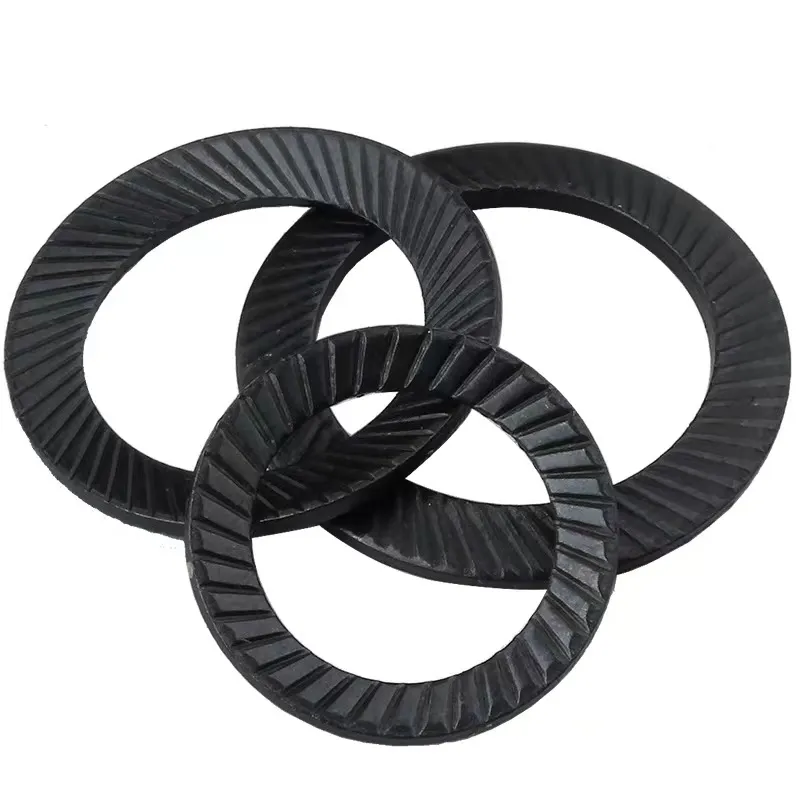

hex bolt
фев. . 18, 2025 04:22 Back to list
hex bolt
Understanding Hex Bolts A Comprehensive Guide to Choosing the Right Fastener
Bolts can be subjected to substantial pressure and shear force, necessitating stringent quality control measures for safety and performance. Certified manufacturers test hex bolts to comply with international standards, such as ISO, ASTM, or ASME, ensuring their products meet requisite specifications for diverse applications. Verification of certification guarantees not only a bolt's mechanical properties but also the reputation of the supplier. When assembling hex bolts, proper torque is paramount to prevent either under-tightening, which risks mechanical failure, or over-tightening, which can lead to bolt damage or compromised material integrity. Utilizing a torque wrench ensures precision, enhancing safety and extending the lifecycle of the assembled structures. Custom fastener solutions may be warranted where standard hex bolts fall short, offering a competitive advantage in specialized applications. Collaborating with suppliers capable of producing custom dimensions or finishes opens opportunities for innovation and enhanced functionality. Such partnerships emphasize a commitment to quality and adaptability, cornerstones in building trust with clients and stakeholders. The strategic sourcing of hex bolts impacts supply chain efficiency and project cost-effectiveness. Price variances, quality, and availability should be weighed meticulously. Analyzing material costs against performance benefits enables informed procurement decisions, contributing to strategic resource allocation and project success. Maintenance considerations extend the utility of hex bolts, involving routine inspection and replacement as needed to preempt potential failures. Ensuring the continued optimal performance of hex bolts reinforces their reliability and reinforces stakeholder confidence in structural integrity. In conclusion, a comprehensive understanding of hex bolt characteristics — material composition, thread specification, quality certification, torque application, customization accouterment — informs the strategic selection and application of hex bolts across industries. This knowledge underscores the importance of fasteners in ensuring mechanical stability, aesthetic adaptability, and cost-effective project management. By aligning these factors with considerations for supply chain robustness and innovation, stakeholders invest in a foundation of trustworthiness and authoritative expertise.


Bolts can be subjected to substantial pressure and shear force, necessitating stringent quality control measures for safety and performance. Certified manufacturers test hex bolts to comply with international standards, such as ISO, ASTM, or ASME, ensuring their products meet requisite specifications for diverse applications. Verification of certification guarantees not only a bolt's mechanical properties but also the reputation of the supplier. When assembling hex bolts, proper torque is paramount to prevent either under-tightening, which risks mechanical failure, or over-tightening, which can lead to bolt damage or compromised material integrity. Utilizing a torque wrench ensures precision, enhancing safety and extending the lifecycle of the assembled structures. Custom fastener solutions may be warranted where standard hex bolts fall short, offering a competitive advantage in specialized applications. Collaborating with suppliers capable of producing custom dimensions or finishes opens opportunities for innovation and enhanced functionality. Such partnerships emphasize a commitment to quality and adaptability, cornerstones in building trust with clients and stakeholders. The strategic sourcing of hex bolts impacts supply chain efficiency and project cost-effectiveness. Price variances, quality, and availability should be weighed meticulously. Analyzing material costs against performance benefits enables informed procurement decisions, contributing to strategic resource allocation and project success. Maintenance considerations extend the utility of hex bolts, involving routine inspection and replacement as needed to preempt potential failures. Ensuring the continued optimal performance of hex bolts reinforces their reliability and reinforces stakeholder confidence in structural integrity. In conclusion, a comprehensive understanding of hex bolt characteristics — material composition, thread specification, quality certification, torque application, customization accouterment — informs the strategic selection and application of hex bolts across industries. This knowledge underscores the importance of fasteners in ensuring mechanical stability, aesthetic adaptability, and cost-effective project management. By aligning these factors with considerations for supply chain robustness and innovation, stakeholders invest in a foundation of trustworthiness and authoritative expertise.
Next:
Latest news
-
Hot Dip Galvanized Bolts - LongZe | High Strength, Corrosion Resistance
NewsAug.05,2025
-
Hot Dip Galvanized Bolts-Hebei Longze|Corrosion Resistance, High Strength
NewsAug.05,2025
-
Hot Dip Galvanized Bolts-Hebei Longze|High Strength&Corrosion Resistance
NewsAug.05,2025
-
High-Strength Hot Dip Galvanized Bolts-Hebei Longze Metal Products Manufacturing Co., Ltd.|corrosion resistance&high tensile strength
NewsAug.05,2025
-
High-Strength Hot Dip Galvanized Bolts - About LongZe | Corrosion Resistance, Customizable Sizes
NewsAug.05,2025
-
Premium GPT-4 Turbo Extension Ring | AI-Powered Precision
NewsAug.05,2025

